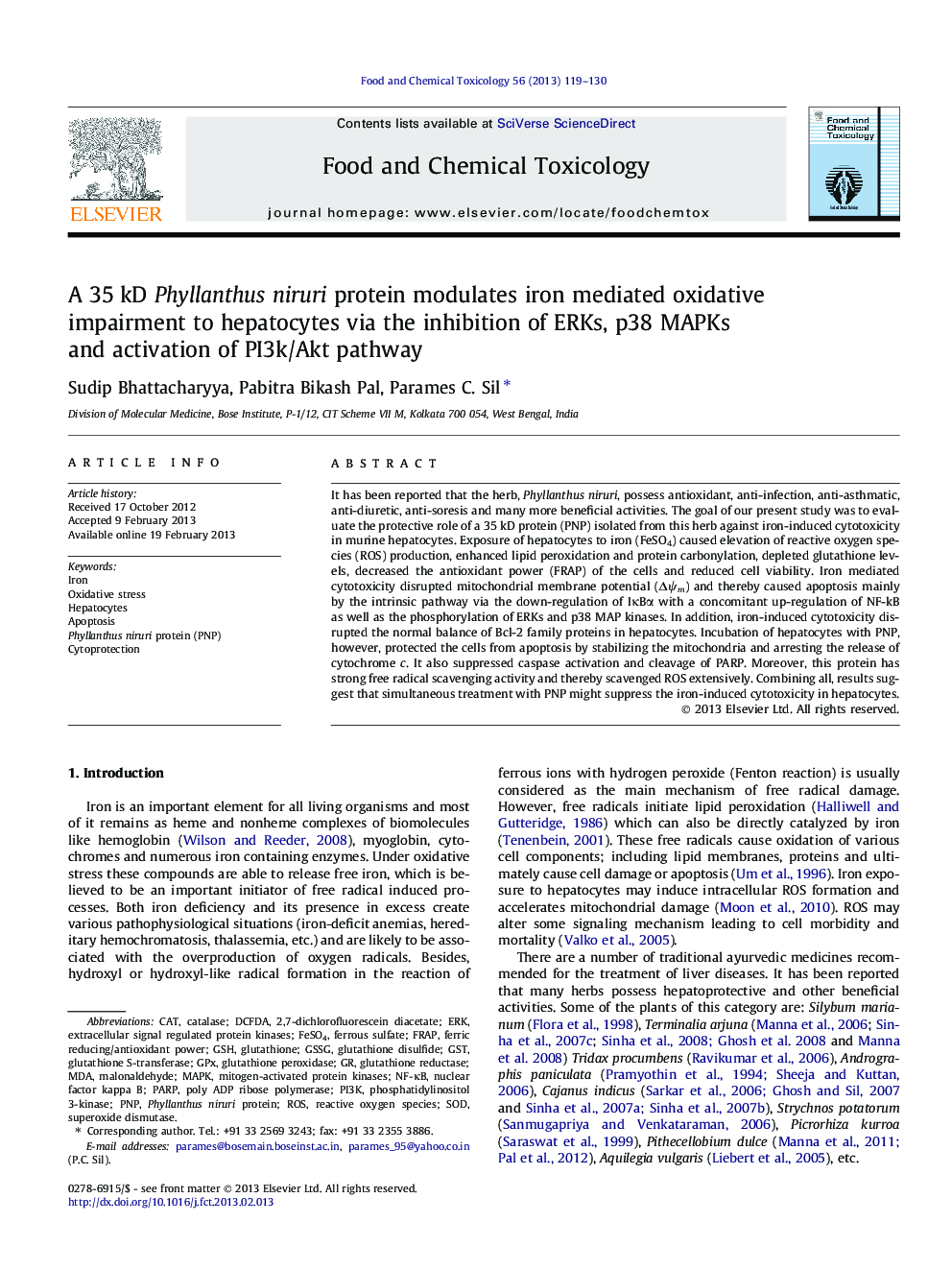| کد مقاله | کد نشریه | سال انتشار | مقاله انگلیسی | نسخه تمام متن |
|---|---|---|---|---|
| 5851194 | 1561788 | 2013 | 12 صفحه PDF | دانلود رایگان |

It has been reported that the herb, Phyllanthus niruri, possess antioxidant, anti-infection, anti-asthmatic, anti-diuretic, anti-soresis and many more beneficial activities. The goal of our present study was to evaluate the protective role of a 35 kD protein (PNP) isolated from this herb against iron-induced cytotoxicity in murine hepatocytes. Exposure of hepatocytes to iron (FeSO4) caused elevation of reactive oxygen species (ROS) production, enhanced lipid peroxidation and protein carbonylation, depleted glutathione levels, decreased the antioxidant power (FRAP) of the cells and reduced cell viability. Iron mediated cytotoxicity disrupted mitochondrial membrane potential (ÎÏm) and thereby caused apoptosis mainly by the intrinsic pathway via the down-regulation of IκBα with a concomitant up-regulation of NF-kB as well as the phosphorylation of ERKs and p38 MAP kinases. In addition, iron-induced cytotoxicity disrupted the normal balance of Bcl-2 family proteins in hepatocytes. Incubation of hepatocytes with PNP, however, protected the cells from apoptosis by stabilizing the mitochondria and arresting the release of cytochrome c. It also suppressed caspase activation and cleavage of PARP. Moreover, this protein has strong free radical scavenging activity and thereby scavenged ROS extensively. Combining all, results suggest that simultaneous treatment with PNP might suppress the iron-induced cytotoxicity in hepatocytes.
Hepatocytes were intoxicated with iron which enhanced reactive oxygen species (ROS) production, activated NFκB, ERKs and p38 MAPKs, disrupted mitochondrial membrane potential (ÎÏm) and thereby caused apoptosis. Incubation of hepatocytes with PNP, however, protected the cells from apoptosis via the activation of PI3K/Akt pathway.Highlights⺠Reactive oxygen species is involved in iron induced cytotoxicity. ⺠Iron induced hepatocytes death occurs via MAPKs and NFκB activation. ⺠Mitochondria dependent apoptotic pathway plays a role in this pathophysiology. ⺠PNP protects hepatocytes from iron induced cytotoxicity and apoptosis.
Journal: Food and Chemical Toxicology - Volume 56, June 2013, Pages 119-130